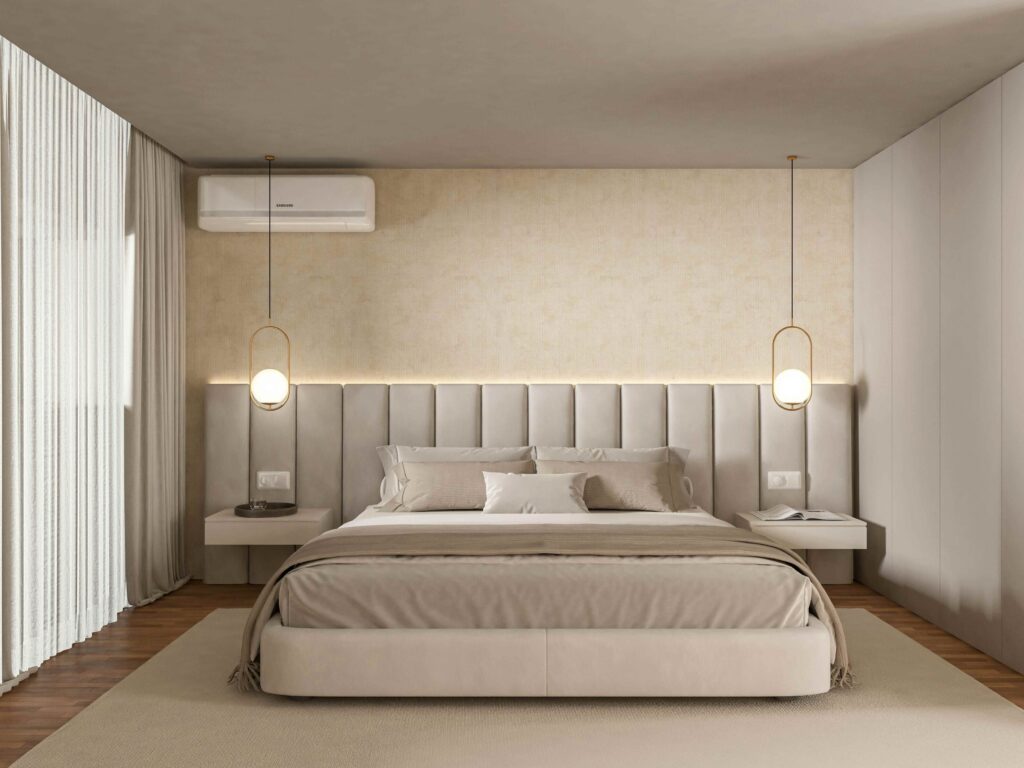Insights Into 2024: Emerging Hospitality Trends for Hotels
Are you wondering how to stay ahead in the hotel industry, ensuring high occupancy rates and an upward trajectory in guest satisfaction? This post unveils key hospitality trends for 2024 that are reshaping the landscape. From the embrace of sustainable practices to woo eco-conscious guests, to the integration of advanced technology, ensuring smooth payment systems and hotel operations.
Discover how these strategic moves can solve the challenge of adapting to the ever-changing expectations of travellers and, more importantly, how they can drive your business forward.
Implement Sustainable Practices to Attract Eco-Conscious Guests
In the dynamic arena of hospitality, reducing environmental impact through energy efficiency (How to reduce the energy bill of your hotel or vacation rental) measures is more than a trend; it’s a necessity. Hotels are harnessing the power of big data to optimise space and energy use, redefining the concept of luxury to include a sustainable ethos (Sustainability in Hospitality: Top Green Practices).
As the community of eco-conscious travellers broadens, it’s crucial for hotels to adopt green initiatives, from sourcing locally to integrating robots for energy conservation. This approach not only aligns with the emerging value-driven travel mindset but also reflects the industry’s commitment to preserving our planet for future enjoyment.
Reduce Environmental Impact Through Energy Efficiency Measures
To reduce their environmental impact, progressive hotels are prioritising energy efficiency, which resonates powerfully in the market. By implementing smart thermostats, LED lighting, and occupancy sensors, these establishments are minimising waste and cutting down on energy consumption. This leadership in sustainability is not only appealing to eco-conscious guests but also proves financially astute as it typically leads to reduced overheads in the long term.
Moreover, in an industry where transport and language barriers can complicate the implementation of green strategies, hotels are collaborating with local tour operators to craft experiences that are both enriching and environmentally responsible. Such partnerships enable hotels to provide guests with opportunities to explore destinations sustainably, positioning themselves as environmentally conscious leaders in the competitive hospitality sector.
Adopt Green Initiatives to Appeal to Modern Travellers
Modern travellers are increasingly driven by the desire for leisure experiences that align with their environmental values. Hotels that introduce green initiatives, such as water-saving fixtures, sustainable toiletry products, and temperature control systems using renewable energy, find that this shift not only bolsters their reputation but can also positively affect revenue. By transparently communicating these measures, hotels tap into the growing market of guests who are willing to pay a premium for accommodations that reflect their own sustainability commitments.
Setting competitive prices while incorporating sustainable practices is a delicate balance that can enhance guest satisfaction and loyalty. Forward-thinking hotels are realising that guests often consider environmental responsibility as much as room rates when making booking decisions (How to Increase Bookings in Your Hotel). Therefore, implementing initiatives like recycling programs, plastic reduction efforts, and sourcing local and organic produce demonstrates a hotel’s dedication to sustainability, ultimately influencing both the leisure-seeker’s choice and their willingness to recommend the property to others.
Enhance Guest Experience With Personalised Services
In 2024, the hospitality landscape is set to evolve further with personalisation at its core. Hotels are leveraging artificial intelligence to tailor guest preferences and offerings, creating a business model that’s responsive to individual needs. Customised communication becomes the heat of guest satisfaction, particularly in regions like the Middle East where service excellence is paramount.
From digital marketing strategies to menu curation, these enhancements aim to deliver a bespoke experience, setting the stage for the detailed discussions to follow on utilising AI effectively and implementing nuanced communication methodologies.
Utilise AI to Tailor Guest Preferences and Offerings
In the hospitality sector’s journey towards 2024, artificial intelligence becomes a cornerstone for personalising the customer experience. As hotels lean into the use of technology to enhance service, implementing AI offers a direct pathway to understanding and anticipating guest preferences. This tech-focused strategy is a smart investment that can lead to greater brand loyalty, allowing hotels to tailor offerings that resonate with each guest, potentially optimizing rates and bolstering finance health.
By collecting and analysing data from various touchpoints, hotels are now positioned to create highly customised experiences that were previously unattainable. Whether it’s tailoring a room’s ambiance to a guest’s liking upon arrival or suggesting local experiences aligned with their interests, the payoff from this level of investment in AI transcends a mere spike in satisfaction: it fortifies the very foundations of customer loyalty and sets the establishment apart in a competitive market.
Implement Customised Communication for Improved Satisfaction
The digital transformation within the hospitality industry is revolutionising interactions between hotels and their guests. By implementing customised communication channels, hotels foster efficiency and enhance the satisfaction of diverse clienteles, from international tourism to business travel. These advancements empower hotels to convey the information with precision and a personal touch, ensuring each guest feels uniquely valued and understood.
As hotels navigate the changing tide of guest expectations, personalised communication stands out as an actionable solution to cultivating deep connections with clients. These engagements, underpinned by insights drawn from guest preferences and behaviours, exemplify hospitality‘s commitment to service excellence. The result is a seamless experience that not only resonates with the consumer but also positions the establishment at the forefront of an ever-competitive landscape.
Integrate Technology to Provide Seamless Hotel Stays
As the hospitality industry embraces the challenges and opportunities of 2024, technology stands as a key driver in delivering seamless hotel experiences. Integrating innovations like contactless check-in (Why hotels must offer online check-in) and digital room keys simplifies guest arrival and access, responding to rising expectations for efficiency and safety.
Smart room features cater to desires for personalisation and convenience, offering tailored lighting and room service at the touch of a button. These advancements reflect a trend across Europe where the adroit handling of uncertainty transforms guest experiences into the realm of sublime comfort and ease.
Offer Contactless Check-in and Digital Room Keys
In response to evolving consumer behaviour, hotels are swiftly adopting contactless check-in and digital room keys, streamlining the arrival process for guests. This move towards frictionless service delivery is powered by advancements in artificial intelligence, enabling guests to bypass traditional reception desk interactions for a swift, secure entry into their accommodation. Such seamless integration of technology caters to a target audience that prizes efficiency without compromising on personal touch or security.
The adoption of contactless solutions dovetails with interests in virtual reality, where hotels enhance guest experiences even before arrival. By coupling digital room access with AI-driven personalisation, hotels are addressing key pain points in the customer journey, providing a glimpse into how technology can tailor every aspect of a stay, down to the temperature or the food preferences in their room. This not only saves time but also aligns with contemporary expectations for bespoke, effortless hotel experiences.
If you are a tourist accommodation or hotel owner and you don’t use Chekin yet. Here is the solution to save 87% of your time and earn more with every booking
Free trial for 14 days. No credit card required!
Provide Smart Room Features for Added Convenience
As we anticipate the sophistication of 2024’s hospitality environment, the integration of smart room features emerges as an indispensable asset for hotels aiming to elevate the convenience of their offerings. Tailored climate control, adaptive lighting, and voice-activated devices are increasingly being forecasted as cornerstones in boutique and mainstream accommodations alike. These intuitive systems cater to guests’ desires for a stay where comfort and technology merge, thus reinforcing a culture of seamless service and personalised luxury.
Visitor expectations are shaping a future where learning technologies within hospitality are less of a novelty and more of an expectation. Hotels are weaving these technological threads into the very fabric of guest experiences. For instance, smart entertainment systems that recall guests’ preferences and curated digital content that resonates with individual cultural inclinations provide dynamic, frictionless leisure within the sanctuary of a room. Such transformational features not only respond to the immediate needs of guests but also fortify the perception of the hotel’s brand as a forward-thinking and adaptable player in the industry.
Promote Wellness Amenities to Meet Guest Health Needs
As we step into 2024, hotels are redefining their approach to guest health, acknowledging it as essential to their offering. Anchoring this focus, fitness programmes and spa services are expanding, attracting travellers whose preferences lean towards maintaining their wellbeing even while away from home. Additionally, the provision of healthy dining options is becoming a core policy, influenced by predictive analytics that understand market trends.
This dual-strategy fortifies a hotel’s reputation in the competitive business environment and meets the growing demand for wellness-focused travel experiences. The discussion will further explore how these wellness amenities are woven into the fabric of hospitality to keep pace with the foresight of hotel trends.
Introduce Fitness Programmes and Spa Services
Recognising the intricate link between guest well-being and customer satisfaction, forward-thinking hotels are introducing bespoke fitness programmes and spa services. These wellness-focused amenities not only cater to fitness enthusiasts but also support the overall productivity and contentment of all guests. With the integration of digital assistants like Amazon Alexa, hotels are creating a synergy between technology and personal well-being, allowing guests to effortlessly align their health regimes with their travel schedules.
Moreover, businesses and leisure travellers alike are placing increasing emphasis on health and fitness as integral to their hotel experience. By providing state-of-the-art gyms, yoga classes, and personalised spa treatments, hotels are positioning themselves as sanctuaries of rejuvenation within the hustle of travel. These services, empowered by Internet-enabled smart scheduling, enable guests to maintain fitness routines and access wellness content that complements their lifestyle, ultimately enhancing guest loyalty and brand affinity.
Offer Healthy Dining Options for Wellbeing
In response to market insights signalling increased demand for nutritious fare, hotels are expanding their menus to offer healthy dining options that align with guests’ wellbeing. These culinary adaptations leverage economies of scale, efficiently providing diverse selections from fresh, farm-to-table ingredients regionally sourced, including vibrant dishes that feature the flavours of North America and Turkey. By prioritising wellness alongside taste, hotels are engaging health-focused travellers and establishing themselves as venues that understand and cater to the holistic needs of their patrons.
Utilising analytics to gauge guest preferences, hotels are crafting dining experiences that appeal to both the palate and the desire for healthy living. This strategy not only positions them favourably in guests’ eyes but also sets a benchmark for the industry in adopting innovative practices. Whether it’s incorporating nutrient-rich superfoods or providing customised meal plans, hotels are actively elevating their service, ensuring that guests’ nutritional needs are met with the same attention to detail that characterises their overall stay.
Cater to Remote Workers With Dedicated Workspaces
With the travel landscape in 2024 continuing to evolve, accommodation providers are recognising the need to adapt to the increasing number of remote workers who blend business with leisure. Hotels are setting the scene for this future by establishing dedicated workspaces, complete with high-speed Internet connections, office facilities, and even smart TVs for seamless screen-sharing capabilities.
These spaces are tailored to meet the needs of business travellers, offering the perfect blend of productivity and comfort, and are further enhanced by targeted social media marketing strategies, particularly in rapidly developing markets such as Saudi Arabia. This development is a clear response to emerging demands within the travel industry, aiming to provide remote workers with the essential tools for a successful work stay.
Set Up Co-Working Areas for Business Travellers
As the trend for remote work solidifies, it sparks a significant shift in market segmentation for hotels. Establishing co-working areas becomes an innovative answer to this change, with properties offering dedicated workspaces adapted to the unique needs of business travellers. These spaces are not just about a desk and a chair; they’re enhanced with controlled room temperature settings, ergonomic furniture, and noise-cancelling environments—all ensuring that guests can work in comfort, mirroring the convenience of a traditional office disrupted by the pandemic.
Hotels are responding to the transformation in real estate and the rising demand for flexible workspaces fuelled by the shift to remote work. By integrating these co-working areas within their premises, hotels deliver an added value that resonates well with the modern traveller, allowing for a seamless transition between work and leisure. This practical, value-added service distinguishes forward-thinking hotels as they adapt their offerings to the evolving work patterns that continue to redefine the hospitality landscape in 2024 and beyond.
Provide High-Speed Internet and Office Facilities
In the ever-responsive world of hospitality, boutique hotels are setting a new standard by equipping their dedicated workspaces with high-speed internet and state-of-the-art office facilities. As email and digital demands surge, the need for an uninterrupted and swift online experience becomes paramount for guests merging travel with remote work. This strategic embrace of technology ensures that the boutique hotel experience encompasses not just leisure but also caters adeptly to the professional needs of its clientele.
Responding to a clear demand for seamless work-related amenities, hotels are prioritising the integration of robust Wi-Fi and comprehensive office facilities into their service offering. This move goes beyond mere convenience; it exemplifies the hotels’ commitment to providing an experience where guests can effortlessly transition between work and leisure. Such foresight positions these establishments at an advantage, even when competing with OTAs, by highlighting their ability to meet the exacting requirements of contemporary travellers.
Boost Revenue With Innovative Marketing Strategies
In the competitive landscape of 2024, hotels are finding innovative marketing strategies essential for enhancing revenue (What is Revenue Management Software for Hotels?). Utilising social media, they reach new audiences with precision, leveraging the power of inventory visibility and targeted promotions. Implementing loyalty programmes, with the aid of machine learning, ensures customer retention and boosts repeat business. Both approaches are instrumental in driving hotel marketing success at remarkable speed, proving to be lucrative strategies in the dynamic world of hospitality.
Utilise Social Media to Reach New Audiences
In 2024, leveraging social media allows hotels to significantly reduce their carbon footprint by engaging in digital marketing that targets eco-conscious consumers. These platforms offer a stage for showcasing sustainable hospitality services, catering to an audience that values a smaller environmental impact. Hotels that highlight their efforts in sustainability, often drawing on the allure of experiential travel, find resonance with guests who seek meaningful connections with destinations such as Japan, where tradition harmoniously blends with eco-friendliness.
Understanding the evolving digital habits of consumers, hotels are utilising social media to craft compelling narratives around their hospitality services. By emphasising unique offerings like local cultural immersions and community-friendly practices, hotels are engaging new audience segments. This approach not only supports revenue growth but also builds a community of advocates for the brand, aligning with an experiential travel ethos that prioritises memorable, responsible, and impactful guest experiences.
Implement Loyalty Programmes to Retain Customers
As we look towards 2024, crafting loyalty programmes is paramount for hotels seeking to foster enduring relationships with their clientele. Savvy hotels in dynamic markets such as Singapore and Dubai are utilising business intelligence tools to tailor rewards that appeal to the individual traveller, from exclusive experiences in sustainable tourism to personalised perks for repeat visits. This strategic investment helps cement guest loyalty and ensures a competitive edge in regions like Latin America, where hospitality is rapidly evolving.
Incorporating loyalty programmes is a powerful method for hotels to increase customer retention and drive repeat business. Through meaningful recognition and rewards, guests feel their patronage is valued, aligning with the philosophy of sustainable tourism where every stay leaves a positive impact. Hotels leverage these programs to capture valuable data, enhancing their business intelligence efforts, enabling them to refine services and capitalise on trends emerging in vibrant hubs like Dubai and Singapore.
Conclusion
As we advance into 2024, the hospitality industry witnesses an inevitable pivot toward eco-friendly operations and personalised services, with hotels embracing smart technology to enhance guest experiences. In an era where the convergence of sustainability and luxury defines a new standard, hotels leveraging energy efficiency, AI-driven customisation, and wellness amenities stand out, catering to the modern traveller’s evolving desires.
These emerging trends provide a roadmap for hotels to not only gratify guests but also to cultivate loyalty and command a competitive edge. Consequently, hotels that adeptly integrate these trends into their business models will likely thrive, assuring a future where hospitality synchronises with innovation and responsible tourism.
Talk to an expert about how Chekin can help you automate your check-in process, stay legally compliant, boost revenue and protect your property or hotel.






